SUMMARY
This is AI generated summarization, which may have errors. For context, always refer to the full article.
![[OPINION] Dear Sonny](https://www.rappler.com/tachyon/2021/02/tl-dear-sonny-sq.jpg)
The following is a letter to Pastor R. Mesina, Jr on the 50th anniversary of his death on February 4, 1971, from his batchmates of Pisay Dos, PSHS Class 1965-1970, written on February 6, 2021.
Dear Sonny,
Kumusta, ka-batch? It’s been a long 50 years since we last saw you, laid to rest after your martyrdom that sparked the “Diliman Commune” – whose 50th anniversary is also being commemorated at UP beloved, kicked off by a Barikada Singkwenta cultural performance which also paid tribute to you. I am sure you never imagined it would come to this, no less than, well, your immortalization in history.
We, your PSHS 1965-70 batchmates – by the way, we now call ourselves Pisay Dos – have long (50 years for those of us who are still around) kept your memory in our hearts. Every time we remember those of us who have gone ahead – and there are 12 of them now, all guys – you are of course always first on the list.
Your death is particularly etched in memory because it was so shocking and painful, because you were so suddenly plucked from family, friends, and classmates while in the flower of your youthful innocence at age 17, a college freshman at UP. So shocking and painful, but you must know, also so awakening and even inspiring to many others, from within and outside our batch, to make them then join the student activist movement.
Rolando “Dodoy” Soncuya, a UP sophomore then – who knelt beside you, got his handkerchief and tried to stop the bleeding from your forehead, which was hit by a .22 caliber bullet from a rifle fired by the mad math professor Inocentes Campos at the activists manning the barricades on University Avenue, until a vehicle arrived to take you to the Infirmary on February 1, 1971 – finally overcame some trauma he had and wrote publicly about your death for the UP Alumni grand homecoming in 2015.
This was what he said at the end, perhaps speaking also for some of our generation: “We are now in the departure area of our lives. Looking back to the early seventies, we have the luxury to reminisce. I have no regrets except for some things that I should have done more for our country, and all this was triggered by the death of my unexpected hero.”
Yes, you were not just a victim, not just a martyr, but a hero.
And you were a hero also in other kinder and gentler ways while in Pisay. Our batchmate Loida Pangilinan (now Dra Constantino) fondly remembers you as “a very nice and close seatmate,” at a time when she and other young girls and boys were among “all the lonely people” in our batch at Pisay while other batchmates seemed to have most of the fun and the fame. We imagine that Loida must have been singing in her head then, “Sonny, you smiled at me and really eased the pain.”
Our batchmate Carmen Amores has her most vivid memory of your steel wool hair as you came fresh out of the sea during a biology field trip to gather specimens at Matabungkay beach. You were a fashion plate, impeccably dressed, according to your bihis menu for the week. Maybe it was one of your ways of following the quartet idols of our generation — John, Paul, George and Ringo – though for some of us it was becoming Marx, Engels, Lenin, and Mao.
The late Mario Taguiwalo of the PSHS first batch, a UP sophomore and Chairman of the UP-SDK chapter then, had written about you shortly after your death on February 4, 1971, saying “Sonny was not an activist nor a revolutionary, but he tried.”
With due respect to my idol Mario and to you, I believe that you had already crossed the threshold to activism. Your defining activist moment was on that fateful tragic day when you had just boycotted your classes in the AS (Palma Hall) Third Pavilion, then listened to a teach-in at the AS steps, marched with the gathered students to University Avenue, and joined the anti-oil price hike and pro-jeepney strike barricades there.
But your getting shot there was an aberration, something like a historical accident that however somehow changed the course of history. I can agree though with Mario that “We cannot find the reason for [your] death in your life; we have to find it in [your, our] society.”
At that activist-defining moment of yours, you were then already a much-needed “belated buddy” to our batchmate Vince Ragay, who says you “flattered [him]with [your] warm friendship, from senior year up to the very moment [he] pleaded with [you] as [you two] retreated from the UP police – [he told you] halika manood na lang tayo ng sine! – minutes before [you] got shot at the barricades. (But [his] brave pal [you] had a duty to fulfill while [he admittedly] fled in fear.)”
Notwithstanding your perhaps accidental but definitively indelible contribution to history, for UP and for the country, we would still much rather have it that you survived those “days of disquiet, and nights of rage.” We would still much rather have you grow to your full potential as a person; as a well-dressed professional in your chosen field of work; as a citizen contributing to nation-building in big or small ways; as a loving husband, father, and grandfather, like many of us. We would still much rather have your happy-go-lucky company at our increasingly frequent reunions where we would “come together…here, there and everywhere,” but now only virtually via Zoom during this pandemic. We miss you very much.
Certainly not as much as your family misses you. I personally cannot forget the emotional anguish expressed unabashedly by your father (from whom you took your looks) – am not sure now whether this was at the Veterans Memorial Hospital, at your wake or at your funeral. This emotional anguish of your parents as well as of other parents of our generation, who lost their activist, rebel, and for that matter soldier sons and daughters to early violent deaths in the context of societal conflict, should not be visited on still another, the present, generation of parents and their children, if it can be helped.
The flower of our youth, the hope of our motherland, the best sons and daughters of our people, especially science scholars, are needed by this country alive rather than dead. It behooves those wielding the ruling power and those who claim to be the vanguard of profound social change, as well as all those concerned citizens caught in between these clashing forces, to seek a much less bloody way to achieve that needed change which has not yet come and to end the related armed conflict.
Our Pisay Dos generation who unintendedly or unavoidably caused much worry to our parents during our time can perhaps still do something to make up for this, in our own small way, along this line, to avoid a vicious cycle for the present generation of parents and children. We owe this to you Sonny, and to our rebel dead batchmates Lazzie Silva, Dopits Alcances, and Alex Belone, so that you all would not have died in vain.
Let me end this batch letter to you on the 50th anniversary of your passing by saying, or rather singing, “Sonny, one so true, [we] love you.”
For Pisay Dos
Soli Santos
– Rappler.com
Soli Santos is presently a Judge of the Regional Trial Court of Naga City, Camarines Sur; a long-time human rights and IHL lawyer; legislative consultant and legal scholar; peace advocate, researcher and writer; author of a number of books; a Philippine Science High School (PSHS) alumnus from the years 1965 to 1970, and a University of the Philippines (UP) alumnus from the years 1970 to 1975.
Add a comment
How does this make you feel?
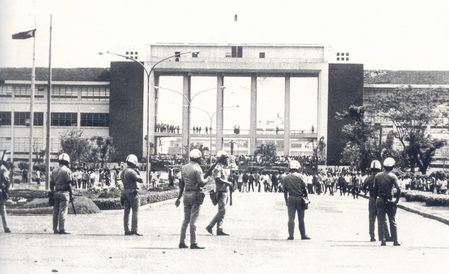
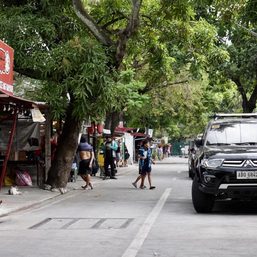
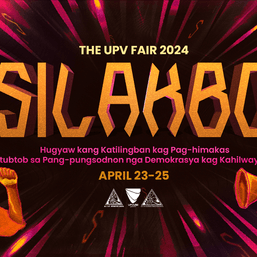

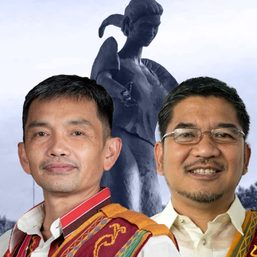
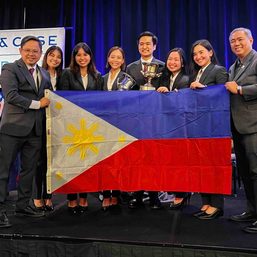
There are no comments yet. Add your comment to start the conversation.